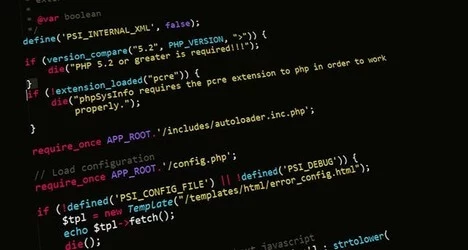What Is the Metaverse for HR?
Add bookmark
Virtual water cooler talk, especially among Human Resources leaders, is focused on the Metaverse nowadays. People are wondering what it is, how it will impact HR and other aspects of business and life, and whether they should believe the hype. Since last week's layoffs at Meta, the parent company of Facebook that went all in on the Metaverse, some are questioning the reality of this "world" built on virtual reality.
Defining the Metaverse
To begin, HR leaders must define Metaverse. Every person asked seems to have a different definition. However, after reading multiple articles on the subject, the Metaverse boils down to a virtual world, where people can interact as three-dimensional avatars. For some, this translates into gamification, while for others it is a place to gather. The Metaverse for HR has the potential to be used for virtual meetings, recruiting and hiring interviews, onboarding, employee engagement, and learning and development.
REPORT: Orchestrated Collaboration: How Employee Engagement Enables Hybrid Work Innovation
Some people have made the connection between the Metaverse and Second Life, a virtual world that many investors hyped in the early 2000s. SL never lived up to expectations. The difference now is that virtual reality is enhancing the experience. People can wear VR goggles and extend their limbs, so they can shake hands with a colleague. They can "walk" over to another part of the virtual room to have a private conversation.
The Society for Human Resource Management (SHRM) describes the Metaverse as an alternate reality online that blurs the lines between the physical and digital environments.
Implications for HR
Erik van Vulpen writes in Forbes of the Metaverse that it is a "more authentic" kind of remote work. The problem is that just about all technology experts are sharing concern about some obvious challenges. While employees being able to present themselves as avatars could level the playing field, other aspects could increase division and cause inequity. Access to the Metaverse requires great bandwidth, and this can be difficult in rural areas. In addition, this could drive ageist agendas in the workplace because younger generations, more comfortable with advanced technology, will have an advantage over older generations in the workplace.
Another concern is cybersecurity. Without greater understanding of the Metaverse and its associated economy, regulators are slow to install guards and protections. As a result, data privacy and workplace safety become issues. HR leaders must navigate the Metaverse to determine how to protect workers from harassment and abuse in the virtual world. Some experts suggest revising internal policies to reflect participation in this new virtual realm.
Also, HR leaders must recognize that their understanding of the Metaverse is vital to the hiring process. Those with an eye on the future must consider the skills people should attain to function in this virtual world. They will have to teach the workforce how to get the most out of it, so they will develop learning and development programs, too.
Keeping New Tech in Perspective
Still, Wired ran a story about being cautious when considering the influence of the Metaverse on the future of both work and life. It reminded readers that Meta is a virtual reality social media platform, and Roblox is a user-generated video game portal. There are also broken game worlds, where NFTs are attached. These are all examples of entities in the Metaverse as a whole. The prediction some in technology are making is that people in their avatars will be able to move seamlessly from one of these platforms to another just as one would go from home to work to the coffee shop, etc.
However, the possibility of doing that kind of Metaverse traveling is still far away, according to Wired. In addition, the associated tech, like the VR headsets, remain clunky and out of reach because of cost and the experience of motion sickness that many feel. Wired suggested that Facebook's rebrand as Meta repackaged old technology and oversold the benefits of the Metaverse. In fact, the layoffs last week seem like confirmation.
HR leaders cannot count out the Metaverse and its potential. However, they must remain skeptical, ask questions, and be cautious about investing too heavily in it without testing the waters first.
What do you think of the Metaverse? Join the conversation and let us know on LinkedIn and Facebook.
Photo by Bradley Hook for Pexels















